One – slashing sugar
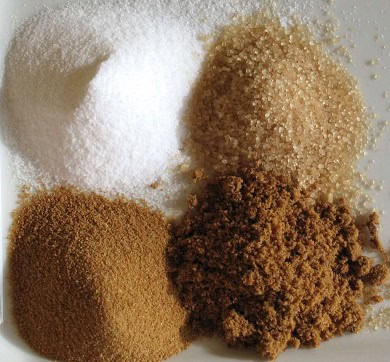 It’s no secret in 2024 that stuffing your face with sugar can lead to savage acne outbreaks. It’s one of the most reliable ways to supercharge pro-inflammatory chemicals and all the red and angry pimples that come with it. There’s no need to eliminate all sugar from your diet, but many people could stand to remove even 100 grams of added sugar per day…
It’s no secret in 2024 that stuffing your face with sugar can lead to savage acne outbreaks. It’s one of the most reliable ways to supercharge pro-inflammatory chemicals and all the red and angry pimples that come with it. There’s no need to eliminate all sugar from your diet, but many people could stand to remove even 100 grams of added sugar per day…
…and after accomplishing this, you may notice a curious phenomenon: higher intelligence and more rapid-fire thought processes.
Firstly, increasing blood sugar levels is a problem in itself. Across the body, it leads to the generation of reactive molecules called advanced glycation-end products (AGEs), which also cause acne. In the brain, two specific AGEs called Nε-carboxymethyllysine (CML) and Nε-carboxyethyllysine (CEL) are generated, which wreak havoc on neurons.
However, sugar’s most infamous effect might be reducing brain-derived neurotrophic factor (BDNF). This is one of the most important promoters of neuron growth and survival in animal brains. BDNF is involved in converting stem neurons in early stages of development to fully fledged adult neurons. Lower levels of DNF are correlated with Alzheimer’s, Parkinson’s and multiple sclerosis – higher levels are correlated with becoming Stephen Hawking.
The connection between high sugar intake and lower BDNF has been established by multiple studies, including on rats and 233 adult humans. Another clue is that BDNF is commonly lower in patients with type 2 diabetes.
One quick strategical tip: while both are damaging in excess, it’s been found that brown sugar is less detrimental to BDNF than its white counterpart.
Two – turmeric
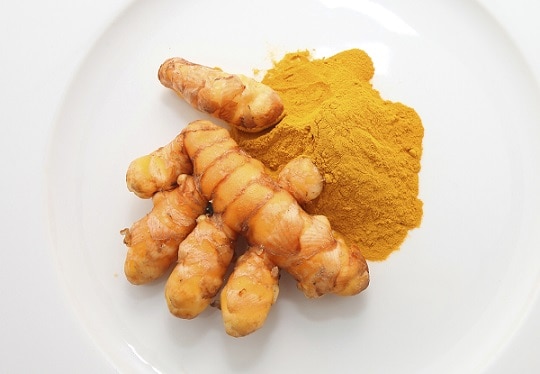 Turmeric is amazing for acne due to its antioxidant-stimulating potential, increasing the production of glutathione due to its bioactive compound curcumin. Topically, it can reduce oily skin, but it’s even better as a food. As for your brain, turmeric can affect the sharpness of your mind in the future and present. Within days, you could gain new intelligence, as turmeric and its active curcuminoid compounds increase the generation of brain-derived neurotrophic factor (BDNF), just as sugar decreases it.
Turmeric is amazing for acne due to its antioxidant-stimulating potential, increasing the production of glutathione due to its bioactive compound curcumin. Topically, it can reduce oily skin, but it’s even better as a food. As for your brain, turmeric can affect the sharpness of your mind in the future and present. Within days, you could gain new intelligence, as turmeric and its active curcuminoid compounds increase the generation of brain-derived neurotrophic factor (BDNF), just as sugar decreases it.
These results were discovered in 2006, when turmeric reversed the decrease in BDNF caused by chronic stress. This is great news if you struggle to get racing negative thoughts under control; you now have a simple biological hack at your disposal.
Then a 2013 study found that curcumin boosted BDNF in a way that correlated closely with its anti-depressant properties. They placed mice in water to create a forced swim test, as a measure of their helplessness, and thus mental state. The curcumin had great benefits for the waterlogged mice. Better, the brain benefits remained 7 days later, so you might not have to eat turmeric every day.
A 2012 study then confirmed that supplementing with turmeric increased the generation of cells in the hippocampus. More cells equals more power. The conclusion was thus: “The results suggest a neurogenesis- and cognition-enhancing potential of prolonged curcumin treatment in aged rats“.
As for our future crystal ball gazing, turmeric is one of the various small factors which have been found to delay Alzheimer’s disease, specifically by preventing the accumulation of amyloid plaques, which accumulate in brain tissue and physically choke out neurons with age.
Three – ginger
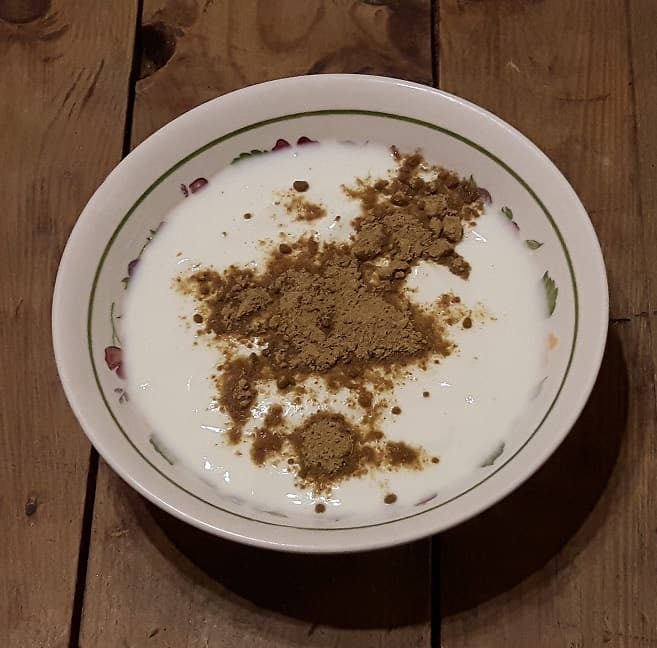 One of the best acne-clearing spices to sprinkle into anything you feel like. With turmeric you’re more limited, but ginger enhances recipes like yoghurt, tea, coffee, dark chocolate, soup, curries.
One of the best acne-clearing spices to sprinkle into anything you feel like. With turmeric you’re more limited, but ginger enhances recipes like yoghurt, tea, coffee, dark chocolate, soup, curries.
Ginger tastes great, and its acne properties include the basic duo of increasing antioxidants and soothing inflammation, which it accomplishes to an extreme degree. Both of these can benefit brain health by protecting neurons from free radical assault, and the delicate molecules of happiness-promoting neurotransmitters (e.g. dopamine).
But ginger is a more complex brain booster as well. Some of its main bioactive compounds are the shogoals. In one study, 6-shogoal was compared to 6-gingerol, another ginger compound, and found to be more effective at calming neuroinflammation, and was deemed to be promising for neurodegenerative diseases.
In another study, 6-shogaol increased nerve growth factor (NGF) levels. Like BDNF, NGF is involved with the growth, maintenance, and survival of certain neuron classes. The benefit was found to carry over to whole ginger in a 2014 study, where NGF increased in the hippocampus of mice, so we know that ginger’s shogaol quantities aren’t too negligible to take effect. It even carried over into reality, with memory-enhancing properties, as the ginger mice were more able to recognise novel objects.
Neurons weren’t just targeted, as ginger fueled the creation of synapses, increasing synaptophysin and PSD-95, two factors involved in their creation.
Four – garlic
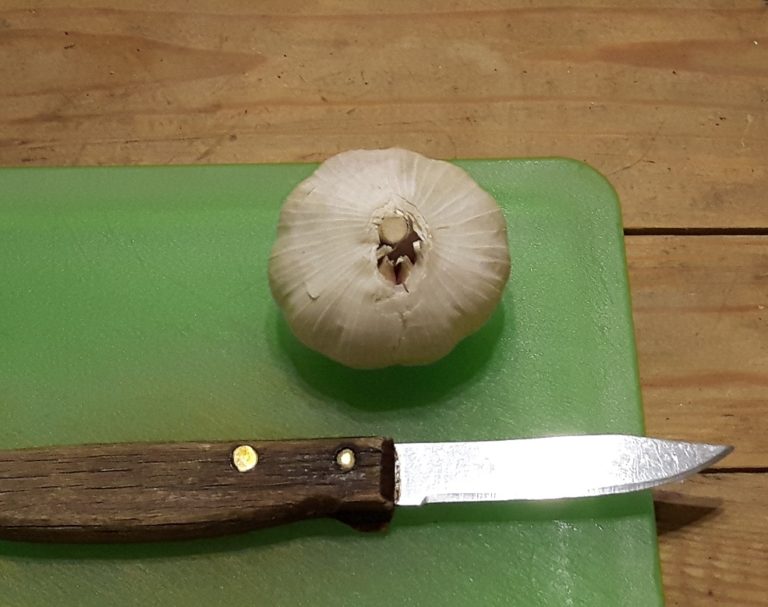 Eat garlic several times per week, and you’ll not just clear acne, but you’ll seriously upgrade the RAM and raw CPU processing power of your brain. Garlic’s acne benefits include its high sulphur content, which is required for formation of the antioxidant glutathione. It contains various anti-inflammatory molecules like the powerful allicin, which only forms when garlic is chopped or bruised or bitten.
Eat garlic several times per week, and you’ll not just clear acne, but you’ll seriously upgrade the RAM and raw CPU processing power of your brain. Garlic’s acne benefits include its high sulphur content, which is required for formation of the antioxidant glutathione. It contains various anti-inflammatory molecules like the powerful allicin, which only forms when garlic is chopped or bruised or bitten.
The brain benefits begin with a study on mice aged 24 months, the human equivalent of aged 56 to 69 years. They were fed one of garlic’s most abundant compounds, allyl sulfide, and the result was an improvement in short term and long term memory. 24 month old mice fed a placebo experienced no improvement. The allyl sulfide mice also had enriched friendly gut bacteria.
Garlic also protects brain tissue by defending against pollutants that destroy it. When young rats were exposed to the heavy metal lead (found in old metal pipes) while developing, it impaired their memory and learning, but garlic proved to be just as effective as vitamin C for shielding against the damage. The mice were really put through it in this study, as they were not only forced to swim to test their panic responses, but in a maze with dark sections.
In another, rats were placed on a small wooden platform, above a grid programmed to deliver mild electric shocks. After stepping down, they were then replaced on the platform on day 1, 3, 7 and day 14, to test their leaning abilities, to see if they recalled the danger. Fresh and cooked garlic extracts caused a significant improvement in memory, in both male and female diabetic rats, although aged garlic was less strong.
Garlic’s antioxidants are almost certainly involved in these neuroprotective properties, but any of its compounds could have hidden benefits. Garlic contains a vast array of sulphurous molecules, including 1,2-vinyldithiin, ajoene and allixin, many of which are poorly researched. This also gives onions brain-boosting potential, as they share many of garlic’s compounds.
Five – olive oil
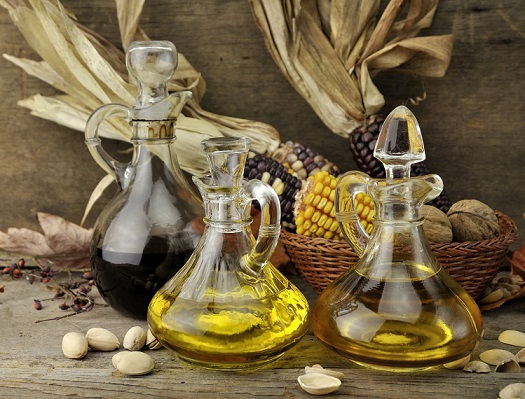 Olive oil almost seems too good to be true sometimes. As a food, it has virtually no downsides except weight gain if you massively overindulge. For acne, olive oil’s vitamin E protects the squalene in your face’s oil from oxidising and spawning waves of free radicals. It contains several unique compounds like oleocanthal and oleuropein which lower inflammation.
Olive oil almost seems too good to be true sometimes. As a food, it has virtually no downsides except weight gain if you massively overindulge. For acne, olive oil’s vitamin E protects the squalene in your face’s oil from oxidising and spawning waves of free radicals. It contains several unique compounds like oleocanthal and oleuropein which lower inflammation.
This 2022 study is particularly great, as it tested both extra virgin and refined olive oil. It was also a long term study which fed 25 human beings olive oil for 6 months. Its main focus was dementia and Alzheimer’s disease, plus several elements which can wind up benefitting everyone. Firstly, one condition correlated with Alzheimer’s is a breakdown of the brain-blood barrier, and this was significantly improved by extra virgin olive oil. It also improved brain connectivity, and activated sections of the brain involved with memory tasks, perception and cognition.
As you’d expect, the weaker refined olive oil didn’t affect the brain-blood barrier or brain connectivity. Yet it still benefitted memory, perception and cognition, and this is olive oil with many of bioactive compounds stripped away. Who knows what the real thing could achieve? Both olive oil forms improved ratios of amyloid proteins, the type that accumulates to creating Alzheimer’s by causing hard, insoluble plaques.
Elsewhere, olive oil has great evidence for fluency and memory tasks (study), synapse density and neuron maturity in the hippocampus (study). In addition to subtler compounds, the vast vitamin E content is almost certainly one reason, as vitamin E has several great studies of its own.
In the world of multivitamin staples, vitamin C and magnesium are the greatest for stress-busting as they slash the hormone cortisol, but in terms of raw cognition, the kind that gives you laser focus, and wards off Alzheimer’s, it’s vitamin E which has the strongest studies.
Six – dark chocolate
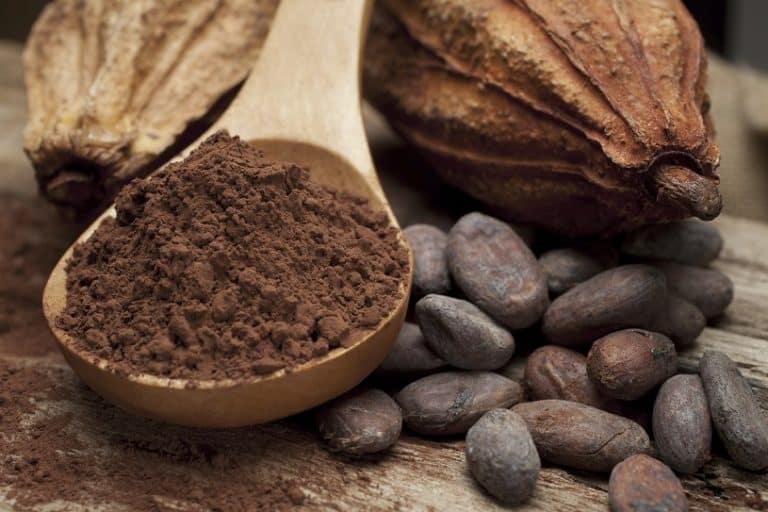 Brain benefits are probably the signature health benefit of dark chocolate. Firstly, the acne benefits: dark chocolate is packed with polyphenol antioxidants, which don’t just deactivate free radicals themselves, but are metabolised by friendly gut bacteria into anti-inflammatory molecules. It also lacks the sugar of milk chocolate.
Brain benefits are probably the signature health benefit of dark chocolate. Firstly, the acne benefits: dark chocolate is packed with polyphenol antioxidants, which don’t just deactivate free radicals themselves, but are metabolised by friendly gut bacteria into anti-inflammatory molecules. It also lacks the sugar of milk chocolate.
As for the thinking device in your skull, dark chocolate has numerous studies for mood and stress. But sticking purely with cognition, it has the same power to boost brain-derived neurotrophic factor (BDNF) as curcumin, because of its stimulant theobromine. It follows an indirect but effective route. Theobromine easily crosses the brain-blood barrier, where it inhibits phosphodiesterase. This leads to higher generation of CAMP, a master switch controlling various cognition mediators. One of these is BDNF, which activating CAMP increases. This 2017 experiment fed mice either a placebo or theobromine for 30 days, and simply found increased levels of CAMP and BDNF. A 2019 study placed rats in a confusing maze, and found that after eating theobromine, their working memory was improved. This was again accompanied by a rise in BDNF in the brain cells.
Dark chocolate got its turn later in 2019, as did human beings. 19 volunteers were fed either white chocolate (which lacks most bioactive compounds) or dark chocolate for 30 days.
This time, both nerve growth factor and BDNF rose, while white chocolate had no effect. Three weeks after the end of the trial, the neurogenerative factors returned to baseline levels, but this is still great news. The scientists might not have realised this, but most people don’t require convincing to eat chocolate every day. It implies that there’s still a brain benefit after 1 week.
Anyway, remember to buy 85% chocolate for the best balance between reduced sugar and plenty of cocoa, but still keeping the flavour.
Seven blueberries
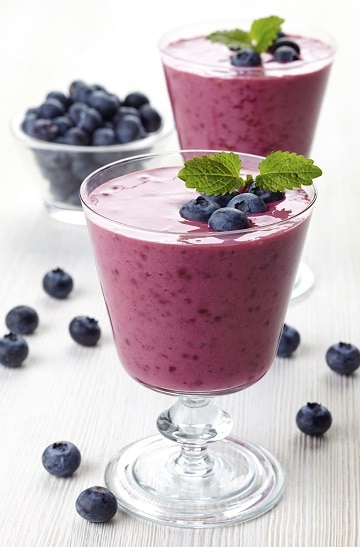 Blueberries might be the most heavily researched brain-sharpening food of the last few years. Studies are flying out the door left, right and centre. There’s too many to list, and the vast majority are positive:
Blueberries might be the most heavily researched brain-sharpening food of the last few years. Studies are flying out the door left, right and centre. There’s too many to list, and the vast majority are positive:
ONE: this study selected older people aged 65-77. Ten drank blueberry juice each day for 12 weeks, while twelve took a placebo. At the study’s conclusion, brain readings showed more excitement in areas connected to cognitive function, working memory and brain blood flow in the blueberry group. Subjects were banned from participating if they already ate 5 or more fruits and vegetables daily.
TWO: this study concluded that in middle-aged people at risk of dementia “ongoing blueberry supplementation may contribute to protection against cognitive decline“. It fed blueberry powder to people aged 50-65 for 12 weeks, and observed improved day-to-day memory and executive function.
THREE: a rat study used young ones aged just 2 months and supplied them with 7 weeks of blueberry supplementation. They soon became faster learners than the placebo rats. This was deduced after placing them in a maze and watching them attempt to escape. Like with dark chocolate, the blueberries increased two neurogenic factors: cAMP and brain-derived neurotrophic factor (BDNF).
FOUR: The most contradictory evidence came in an experiment on metabolic syndrome patients aged 50-75. When given a cup of blueberries in powder form, they enjoyed increased feelings of self-reported calmness 1 hour later. However, they experienced little improvement in cognition, alertness and mood, both 1 hour after consumption and 6 months after regular blueberry consumption.
FIVE: a superior study tested healthy older people rather than those with dementia, aged 65-80. After 12 weeks of eating wild blueberries, they had superior cognitive and vascular function in the brain, including improved recall on an auditory verbal learning task.
Blueberries aren’t quite proven, but they’re edging towards being beyond reasonable doubt.
As for acne, blueberries are outstanding for lowering inflammation and supplying antioxidants, and at 10 grams of sugar per 100 grams, they can be slotted into your diet plan with ease.
Conclusion
Some other secrets out there include blood flow boosting strategies, like celery or watermelon, both excellent foods for acne. We can talk about obscure neurogenerative co-factors all we want, but if there’s no blood flowing through the channels of your brain, you’re in serious trouble (though doing a headstand might work).
Remember: if you follow the path of natural acne strategies instead of pharmaceutical chemical bombardment, you have much more than clear skin to look forward to.
Thanks for reading!
